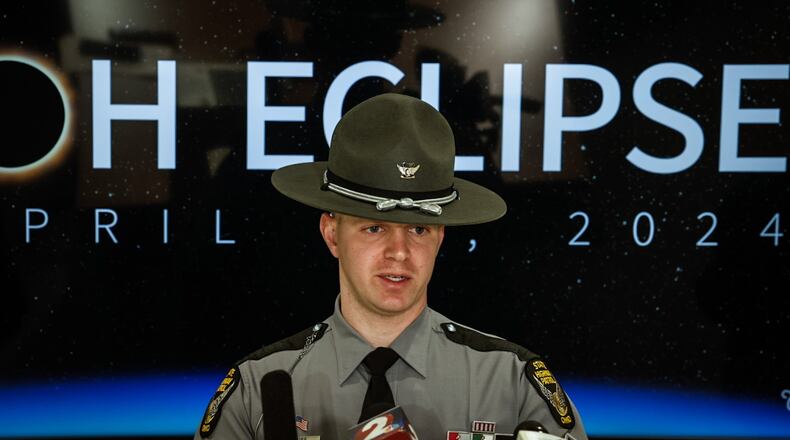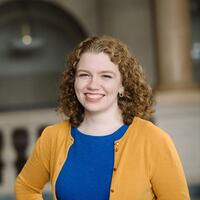“The county is concerned about traffic congestion due to travelers who wish to view, and the potential for a strain on local resources,” said Pam Gayheart, spokeswoman for Fairborn schools, on their decision to close.
The “totality” portion of the eclipse will be in the Dayton area around 3:10 p.m., a time when many students would be walking hom, riding school buses or being picked up. Kettering Superintendent Mindy McCarty-Stewart said the district anticipated long delays in families picking up Kettering students if they had stayed open.
“In the interest of safety and in light (pun intended!) of the 3-4-hour delays that are being projected for bus runs and parents/guardians who would be picking their children up from school during the eclipse, we have made the decision to close school and designate April 8, as a ‘calamity day’ for KCS students and staff,” McCarty-Stewart said in a Jan. 26 letter to parents.
Ethan Raby, director of the emergency management agency for Greene County, said his agency made a recommendation to Greene County schools to close that day primarily because of traffic concerns.
Raby said he couldn’t give an exact number on the increase of traffic expected that day, but he said reports from the 2017 eclipse in parts of Wyoming and Tennessee showed traffic tripled or quadrupled in areas where the eclipse could be seen.
“If you’re driving on I-70, I-75, or 675, or 35 as an alternative to 70, that could be impacted,” Raby said.
He suggested people not schedule important medical appointments for April 8, try to have gas and food stocked up so they don’t need to go to the store and get needed medication before if possible.
“This is definitely on a scope that is different than what we have experienced in the area,” Raby said. “There’s still a lot of unknowns, and we’re simply trying to plan for the best possible outcome.”
There were also some concerns about having students in an uncontrolled environment on a bus, when they might look directly at the sun during a solar eclipse and damage their eyesight.
“A solar eclipse can cause vision damage, and so you need to be sure to wear the proper eye protection, proper solar viewing glasses when viewing the solar eclipse,” Raby said.
Some districts said they considered letting students out earlier or holding them later but said that ultimately administrators chose not to follow that route.
“I couldn’t imagine the logistics of keeping students late and then getting them home without serving a meal and dealing with other issues such as commitments that students may have outside of school,” said Michael Sander, Franklin Schools superintendent.
Credit: JIM NOELKER
Credit: JIM NOELKER
Franklin Schools will be closed that day, Sander said in an email.
Jason Enix, superintendent for Huber Heights schools, said employee contracts, which dictate working hours, along with concerns about traffic being impacted for hours after the eclipse, also factored into the decision to make April 8 a staff professional development day for the district.
While school districts generally aren’t doing their own activities during the eclipse for students, many have encouraged teachers to talk about the eclipse the week before and some have referred families to specific programs in the area.
“We appreciate our school community’s understanding as we work collaboratively with local authorities to keep everyone as safe as possible during the eclipse,” said Centerville Superintendent Jon Wesney. “We hope families will take advantage of learning opportunities that will be offered throughout the area on April 8.”
A Wall Street Journal story from 2017, just before the last solar eclipse that could be seen from much of the U.S., cited some school districts who said they chose to close due to insurance companies’ concerns about lawsuits. The Dayton Daily News filed a records request for any emails that school superintendents or business managers from 10 school districts had sent to insurance companies about the April 8 eclipse. Eight districts said they had no responsive records and two districts were not able to respond by deadline.
About the Author


